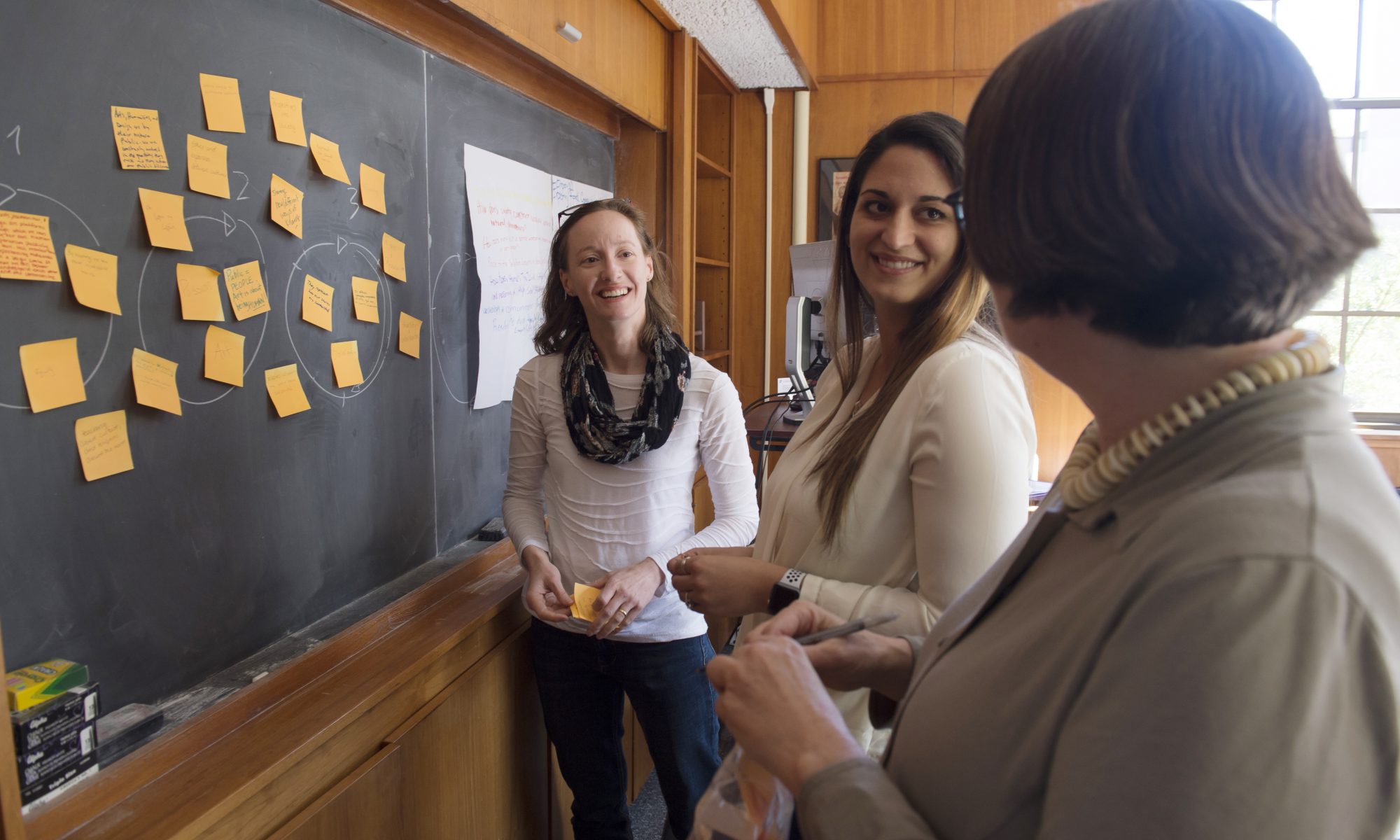A Mellon grant supports discussing tough topics on campus.
Most people shy away from conversations about race, religion, and politics, but UF’s Center for the Humanities and the Public Sphere (CHPS) is inviting them, among other topics, such as technology, ethics, and social justice. The center recently announced the formation of its inaugural Intersections Research-Into-Teaching Grants, made possible with $400,000 in funding from The Andrew W. Mellon Foundation. Awards of $30,000 to four Intersections Groups will support UF faculty and staff working together across disciplines to address major social problems, examine current cultural trends and experiences, and explore next steps in science and technology.
“Importantly, the Intersections Groups will translate scholarship into teaching to expose first-year students to the significance of the humanities in multiple thematic contexts,” says Barbara Mennel, interim director for the center.
Together, these interdisciplinary groups unite 24 faculty and staff members and seven affiliate faculty, from 20 disciplines and six colleges across UF.
A large group of faculty members from the Samuel Proctor Oral History Program, the Center for Gender, Sexualities, and Women’s Studies Research (CGSWSR), African American Studies, Latin American Studies, and African Studies will join forces to discuss the African and Latinx diaspora and develop tools for higher education to improve campus climate and race relations. Anna Peterson of Religion and Jaime Ahlberg of Philosophy will lead a group that will develop a course surrounding contemporary ethical issues, such as First and Second Amendment rights and environmental impact. Whitney Sanford of Religion also is in this group. Jodi Schorb of CGSWSR and Stephanie Birch of African American studies will lead a group that creates dialogue on campus through speaker events and symposia on the topics of mass incarceration and restorative justice. Elizabeth Dale of history and Lauren Pearlman of History and African American Studies also are in this group. Finally, Betty Smocovitis of History and Biology and Eleni Bozia of Classics will lead a group devoted to the use of the “technosphere” to enhance society and the campus experience, as well as illuminate and shape our collective future. Will Hasty and Ying Xiao of Languages, Literatures, and Cultures, and Ken Sassaman of Archaeology, also are in this group.
Says Mennel, “These Intersections Groups demonstrate the urgency for scholars to mobilize interdisciplinary collaboration with the humanities in order to respond to grand challenges.”
To support the people, program, or research featured in this story, please visit
